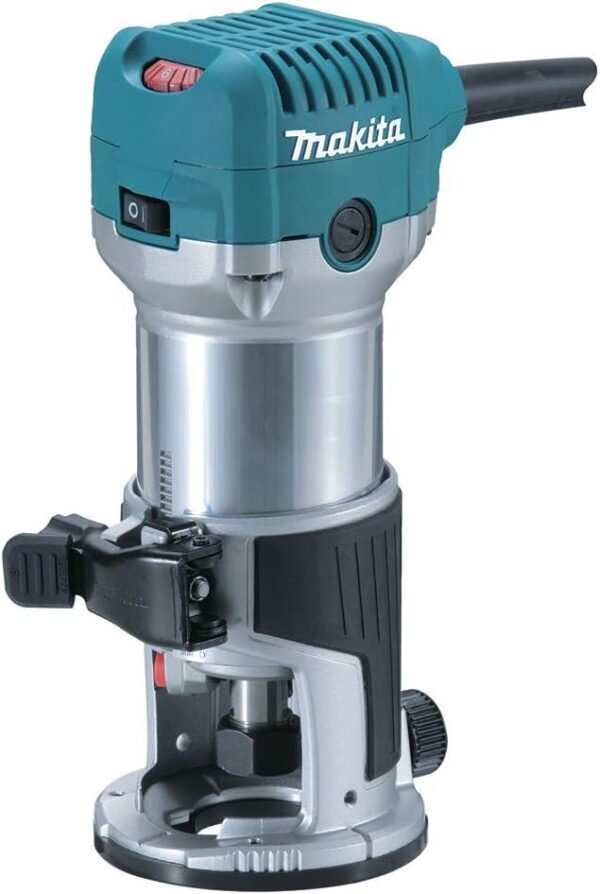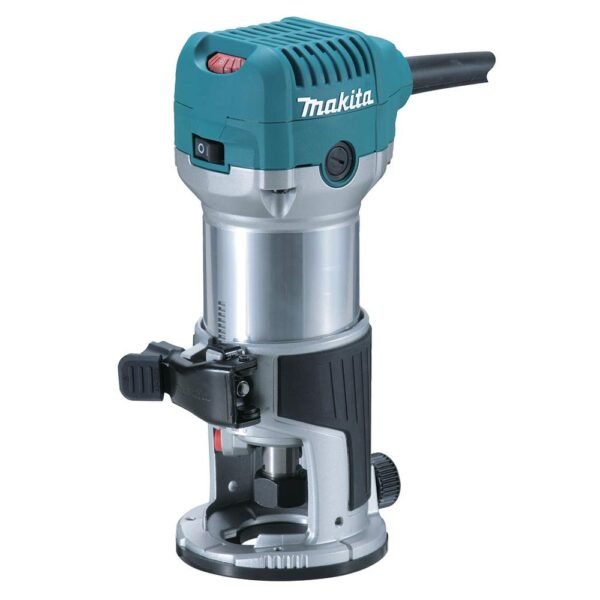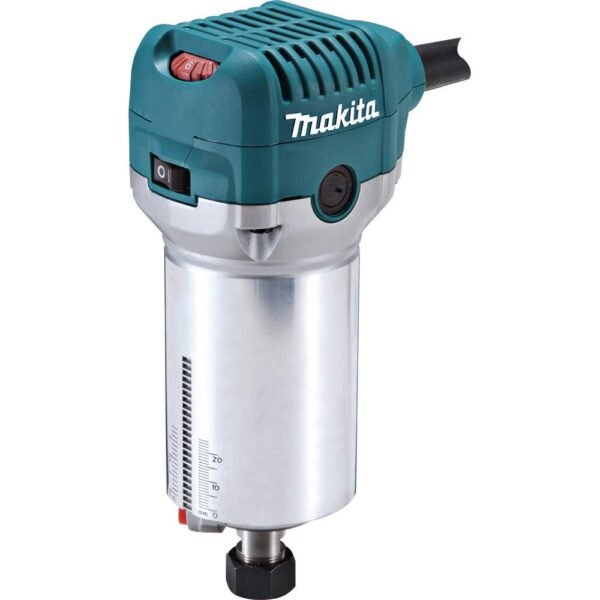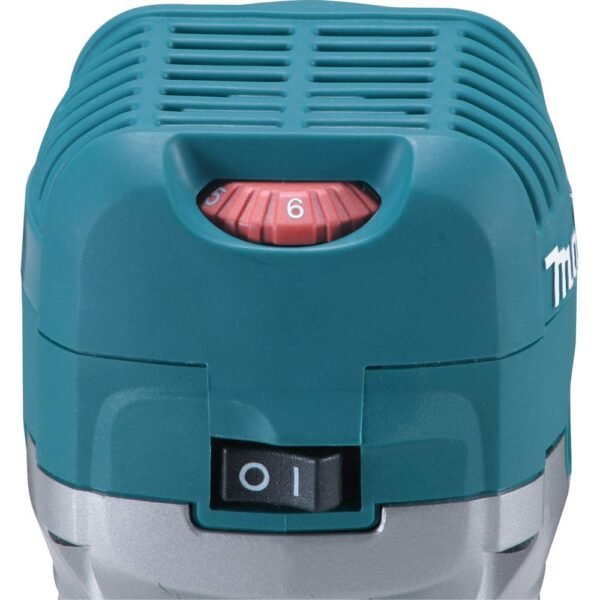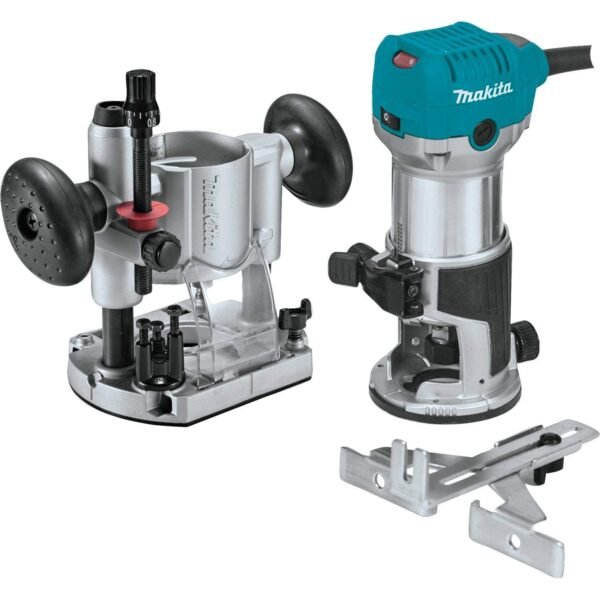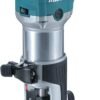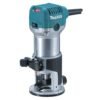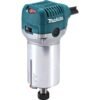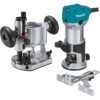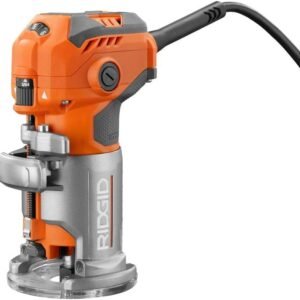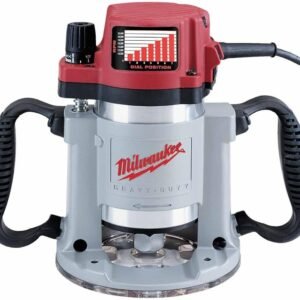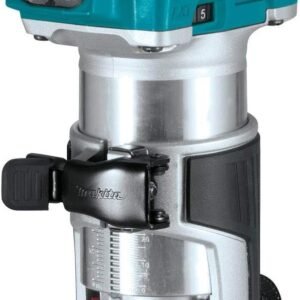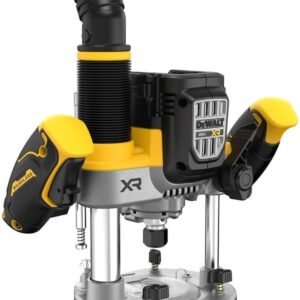Makita RT0701C Compact Router Review Variable Speed and Precision Control Explored
Makita RT0701C Compact Router Review Variable Speed and Precision Control Explored
- Variable speed control dial allows precise adjustment from 10,000 to 30,000 RPM, matching the speed perfectly to different tasks.
- The soft start feature ensures smooth startups, preventing sudden jerks and enhancing user comfort.
- Its slim, ergonomic design provides exceptional control and reduces fatigue during extended use.
- Electronic speed control keeps the speed steady even under heavy load, improving overall performance.
As an Amazon Associate I earn from qualifying purchases.
Description
Ergonomic Design and Build Quality
Testing the Makita RT0701C 1-1/4 HP Compact Router Tool, I immediately noticed its slim and ergonomically designed body. This feature truly enhances comfort and control, especially during prolonged use. The tool weighs only 3.9 pounds, making it feel light yet sturdy in hand. Its heavy-duty aluminum motor housing gives a solid, durable feel that reassures me I’m using a robust device built to last. The teal color adds a touch of style without being flashy, fitting neatly into my workshop gear. Handling this router, I appreciated how the compact size allowed me to maneuver in tight spots where larger routers often struggle.
Performance and Speed Control
One of the most impressive features is the variable speed control dial, letting me adjust the speed from 10,000 to 30,000 RPM. This adaptability is essential for matching the router’s power to different materials and tasks, from delicate edge trimming to more aggressive cutting. The electronic speed control keeps the RPM constant even under load, which means the motor doesn’t bog down unexpectedly—important for clean, consistent cuts. Additionally, the soft start feature ensures the tool powers up smoothly without sudden jerks, preserving both my precision and safety. Having tested other routers, this consistent power delivery stands out as a major plus.
Depth Adjustment and Base Features
I found the smooth rack and pinion fine depth adjustment system particularly useful for making precise settings. It’s a relief to have such control without fumbling around or guessing the depth. The quick-release cam lock system is another convenience that speeds up my workflow by allowing easy depth changes and base removal or installation. This router comes with a fixed base that accepts industry-standard template guides, making it compatible with a wide range of accessories I already own. The high visibility base design helps me see my work clearly, which is critical for accuracy, especially on detailed projects.
Positive Features
The Makita RT0701C boasts several advantages that stood out during my hands-on experience:
- Compact and lightweight, which reduces fatigue.
- Variable speed control for versatile applications.
- Soft start and electronic speed control for smooth, consistent operation.
- Durable aluminum motor housing that feels rugged.
- Easy-to-use depth adjustment system with high precision.
These perks combine to make this router a reliable and versatile tool for hobbyists and professionals alike.
Limitations and Areas for Improvement
Despite the many strengths, a few drawbacks surfaced. The fixed base, while solid and compatible with many guides, limits flexibility compared to plunge routers, which offer more depth control options. The router’s power source is corded, which can be restrictive in workshops lacking convenient outlets or requiring more mobility. Though the 3.9-pound weight is light, some users might prefer an even lighter tool for ultra-precision work or extended use. Lastly, the price point might be steep for beginners, especially when considering other routers with similar specs but lower costs.
Price to Quality Ratio
Evaluating the price to quality ratio, this compact router seems to offer solid value for investment. Its durability, performance features, and ergonomic design justify spending a bit more than budget models. For those serious about woodworking or needing a dependable compact router, it provides cost-effectiveness considering its long lifespan and consistent results. However, casual users or those on a tight budget might find more affordable options that lack some of the refinements but still get the basic job done.
Competing Brands and Alternatives
Comparing this router to competitors like the Bosch 1617EVSPK or DeWalt DW618, the Makita excels in motor durability and smooth speed control. The Bosch offers a plunge base, which some users might prefer for depth versatility, but it doesn’t match the Makita’s soft start and precision depth adjustment. DeWalt models tend to be heavier and bulkier, reducing comfort during extended use. On the downside, Makita’s fixed base might disappoint those wanting a plunge option, as both Bosch and DeWalt offer dual-base kits. Overall, this router shines in durability and consistent performance, but if plunge routing is a must-have, other brands might edge it out.
Testing this router has been an eye-opener in terms of what to expect from a compact, handheld tool. Its smooth operation, adjustable speed, and comfort make it a versatile choice for a range of woodworking tasks. While some limitations exist, particularly in base flexibility and corded power, the device’s solid construction and thoughtful features earn it a spot in any serious woodworker’s toolkit. My family, who have seen me use it for various DIY projects, appreciate how quietly and precisely it operates compared to older, bulkier routers I used before. This makes the Makita RT0701C a strong contender in the compact router market.
Additional information
| Brand | Makita |
|---|---|
| Material | Alloy Steel |
| Power Source | Hand Powered |
| Product Dimensions | 3.5"W x 7.88"H |
| Voltage | 120 Volts |
